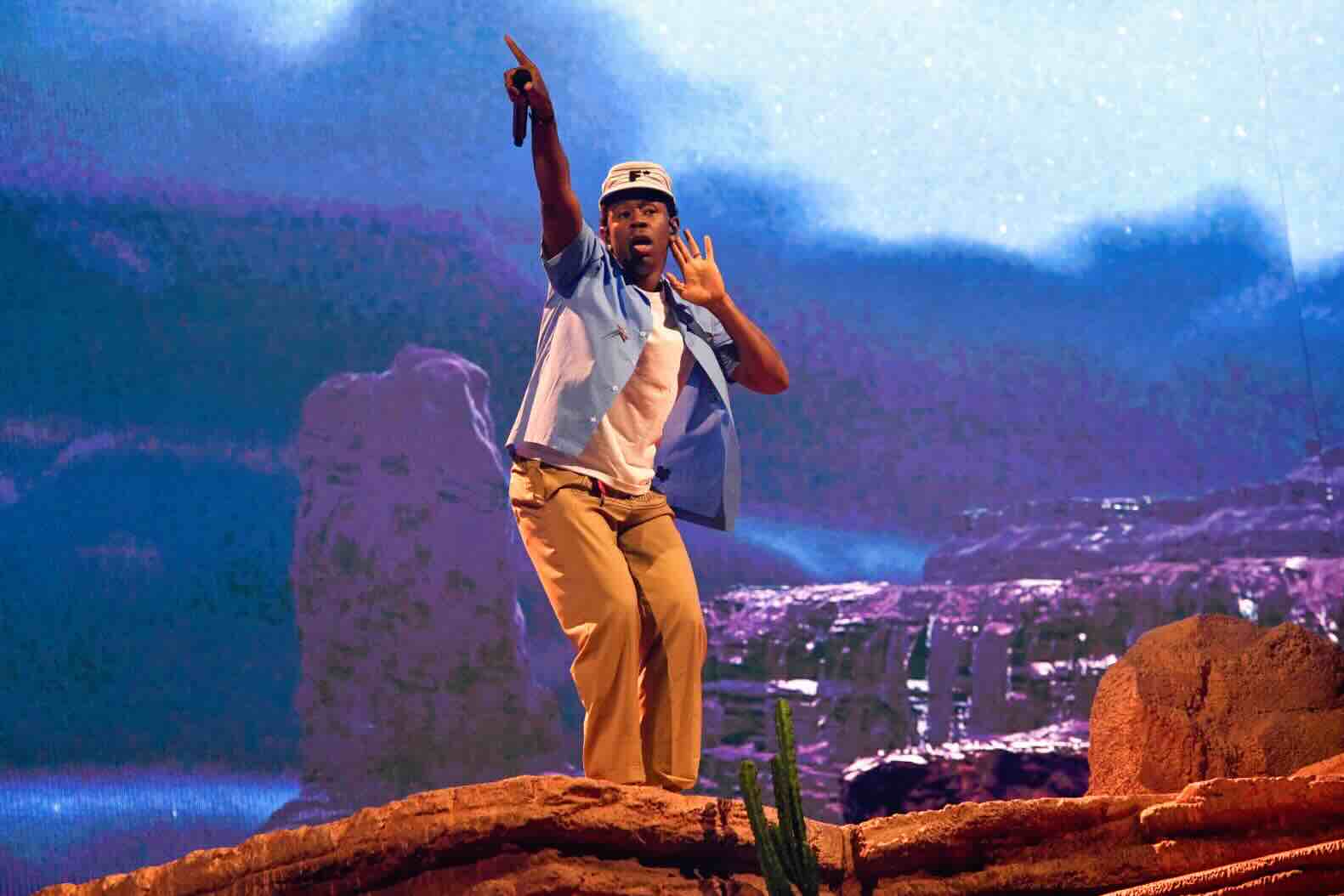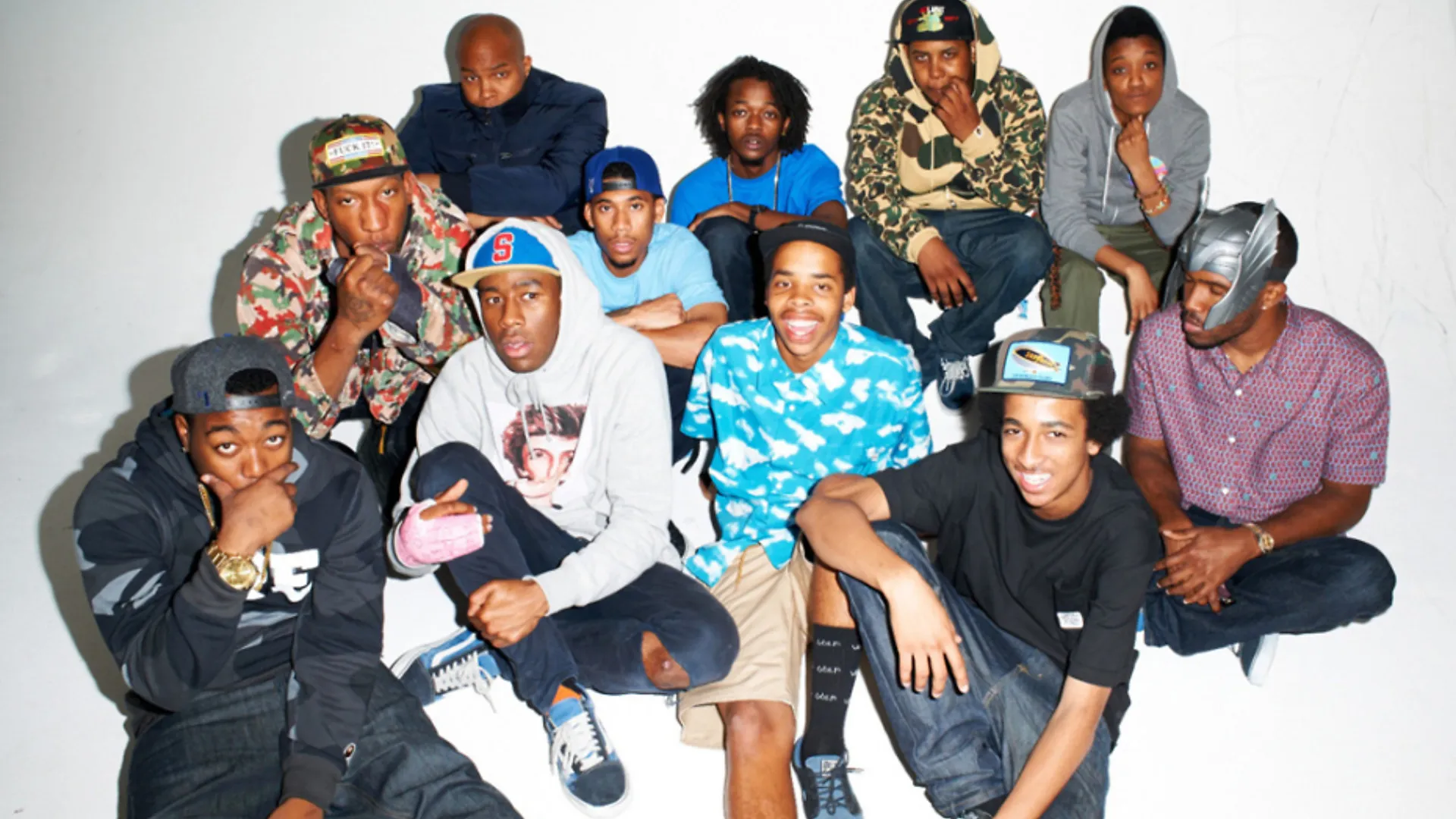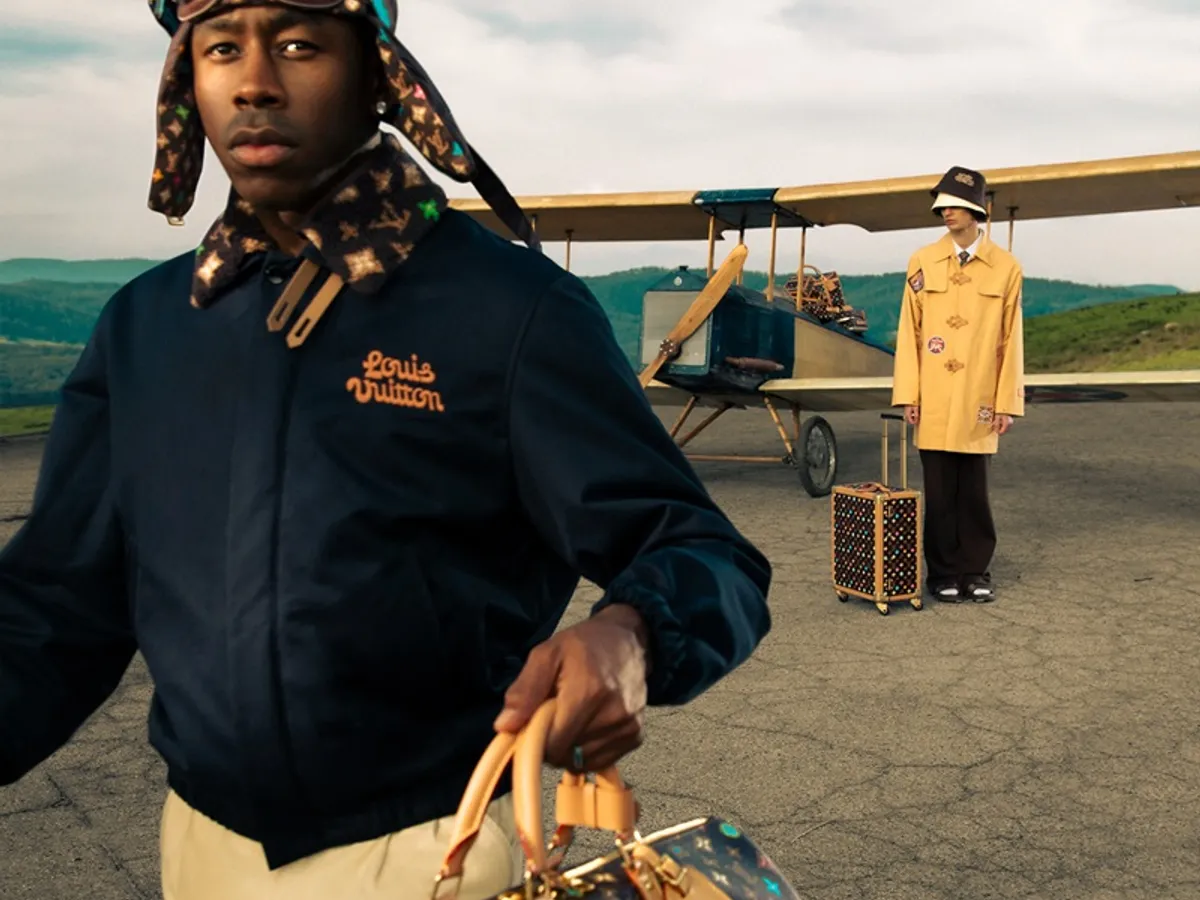
How One Odd Future Kid Flipped the Music Industry
How One Odd Future Kid Flipped the Music Industry
Tyler, the Creator, was once written off as the weird kid on the block. Little did anyone know, he was ahead of his time. He went from leading the provocation-heavy Odd Future crew to shaping the soundtrack, fashion, and spirit of a generation. Today, he's one of Black music’s most innovative architects, and his impact stretches far beyond rap.

Born Tyler Gregory Okonma in Hawthorne, California, the rapper turned his early eccentricity into explosive creativity. He co-founded Odd Future in 2007, the no-rules collective that redefined rap and internet culture. From controversial lyrics to lo-fi DIY videos, Odd Future grew from blog rage to global influence, launching Tyler's solo career and cementing his reputation as a fearless auteur.
Tyler has never been one to repeat himself. After his shock-rap beginnings with Bastard (2009) and Goblin (2011), he shifted into soulful, genre-bending territory with Flower Boy (2017), an album that reshaped perceptions of his artistry. Then came IGOR (2019) and Call Me If You Get Lost (2021), which are both Grammy-winning chart-toppers that solidified his place among hip-hop’s elite.

In 2024, he released Chromakopia, a deeply personal album narrated in parts by his mother, weaving hip-hop, jazz, funk, and soul into what critics called “cohesive chaos.” The project didn’t just mark an artistic evolution but cemented Tyler’s reputation as one of the most innovative Black artists of his generation.
Fast forward to July 2025, and Tyler dropped Don’t Tap the Glass, his latest album and another bold creative pivot. Sonically playful and dance-driven, the project debuted on the Billboard 200, reinforcing his knack for reinvention. With standout features from Pharrell Williams, Madison McFerrin, and Yebba, the album showcases Tyler’s curatorial genius, blurring the lines between hip-hop, pop, funk, and experimental electronica.
Aside from shaping the sound of a generation, Tyler is also known for rewriting its style codes. Over the years, his bold, offbeat fashion choices have become just as iconic as his music. From the retro “porn ’stache” and oversized rope chains to vinyl pants, pastel knits, and vintage sunglasses, Tyler leans into an unapologetically eccentric aesthetic that sets him apart from his peers.

But his influence doesn’t stop at personal style. Tyler built an entire fashion empire around his vision. His streetwear label, GOLF WANG, has become a cultural mainstay, known for its vibrant colors, playful graphics, and nostalgic inputs. Meanwhile, his luxury line, Golf le Fleur*, experiments with high-end fits, perfumes, and accessories. He's also designed a collection for Louis Vuitton with Pharrell Williams. For Tyler, visuals aren’t an afterthought; they are central to his storytelling, with each album era reflected in his wardrobe, campaigns, and designs.

Tyler is not slowing down. This November 15–16, he brings back his iconic Camp Flog Gnaw Festival at Dodger Stadium, curating one of the most talked-about lineups of the year. Heavy hitters like Childish Gambino, A$AP Rocky, Earl Sweatshirt, Clipse, Tems, Doechii, and Thundercat are set to take the stage, making it a defining cultural moment for Los Angeles and beyond.
From being dismissed as “too weird” to becoming one of the most influential voices in music, fashion, and culture, Tyler, the Creator has built an empire out of authenticity. His refusal to conform has given Gen Zs and Black artistry at large permission to exist without boundaries. Regardless of whether he’s dropping a genre-bending album, curating a festival, or launching a new fashion era, Tyler remains a creative force who doesn’t just follow culture; he moves it forward.
Comments